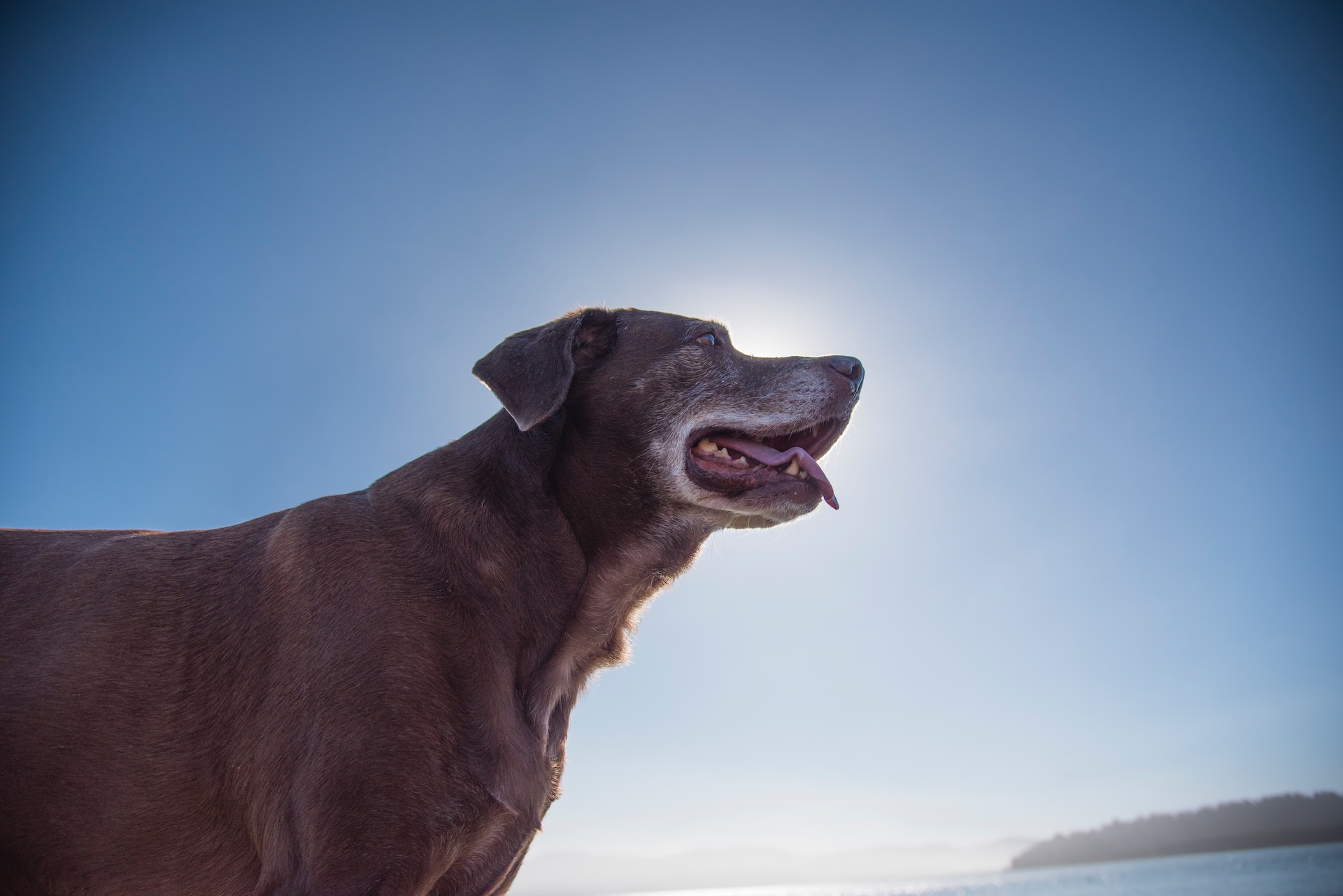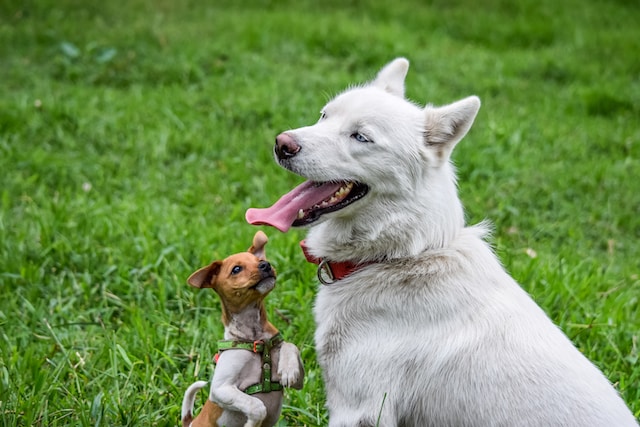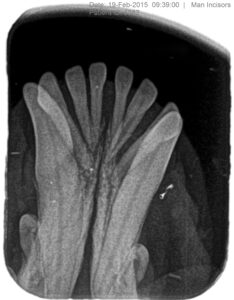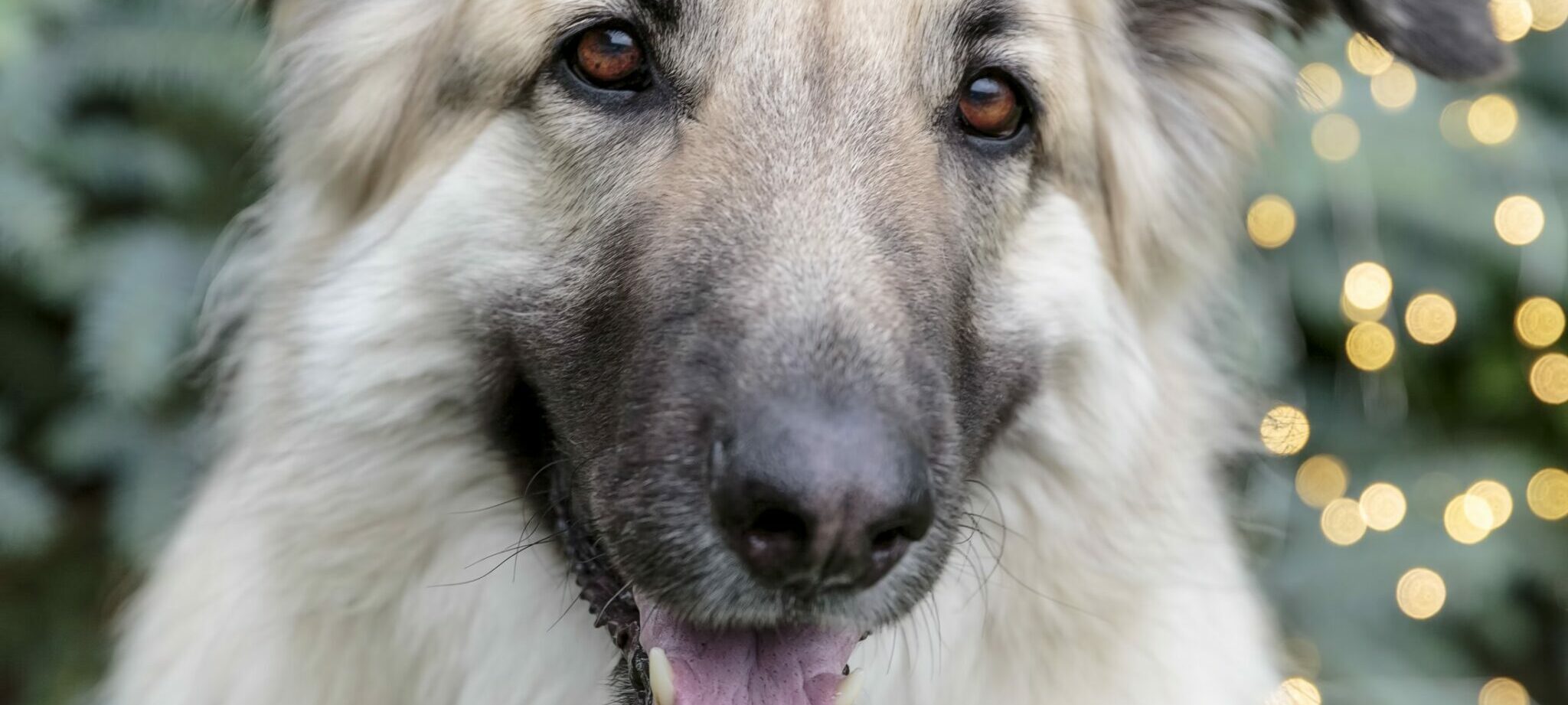
15 Dec Why Is My Senior Dog Losing Teeth?
We all have a genuine fear of losing teeth. Vanity aside, when we see people with missing teeth, we can visualize facial changes associated with this (bone loss) and we run home to brush our teeth and floss just to make sure it doesn’t happen to us!

As veterinary dental specialists (TM), we see a lot of senior dogs and cats. The rule of thumb is the smaller the pet, the longer they live. so a Chihuahua, Miniature Poodle, or Shih Tzu historically lives longer than a German Shepherd, Labrador, or Doberman. These smaller pets do however have oral issues that can affect the mandible and maxilla more than their large dog counterparts. These issues are due to crowding and rotation, which directly lead to bone loss.

What Causes Senior Pets to Start Losing Teeth?
So let’s regress for a second and ask ourselves, how did we get to this situation where my senior pet has to have multiple oral surgical extractions? My first answer is the most direct and factual…if your pet has not had annual anesthetic dental care that includes dental imaging (X-rays and/or Cone Beam CT), the chances are very high that your pet will have existing disease that has caused bone loss.
Periodontal Disease and Tooth Loss in Pets
There are 4 stages of Periodontal Disease (PD), and three of them involve bone loss. Stage 1 is called gingivitis, and is the only stage that is reversible. Once bone loss occurs, it is impossible to regrow bone height across a horizontal plane. Stage 2 PD (<25% bone loss) requires professional care that may include root planing and placement of a perioceutic (antibacterial and anti-inflammatory agent placed in a dental pocket). In most cases, a tooth with this stage can be saved. But beyond this Stage, Stage 3 (26-50% bone loss) and Stage 4 (>50% bone loss) require oral surgery to remove the tooth due to extensive bone loss.
The most common teeth we see that require extraction are the mandibular and maxillary incisors, followed by the maxillary premolars. This is anecdotal, although I have been practicing dentistry since the advent of running water and flushable toilets! The reason these teeth are involved is that they (especially the incisors) are overly crowded, while also not being used to chew. Incisors are meant to be used to grab things, not chew. The incisive bone associated with these teeth is thin and not as dense as the bone that lies behind the canines.

Advanced bone loss on the maxillary incisors requiring oral surgery

Advanced bone loss on the mandibular incisors requiring surgical extraction
How to Prevent Tooth Loss in Dogs and Cats
Even with daily home care that includes brushing teeth, oral rinses, VOHC-approved water additives, and chews, your senior pet may indeed still have some teeth that need attention. The same applies to us as humans. We brush and floss daily but still develop periodontal pockets. The good news is by doing the above, you do prevent more ADVANCED disease from occurring, so count your blessings.
If you had your senior dog’s teeth attended to annually, then chances of tooth loss are minimized, but can still happen due to non-use and crowding. However, this is more predictable and manageable versus those senior dogs that have not had dental care performed on a regular annual basis. Those cases may require more oral surgical intervention.
Annual Pet Dental Cleanings in Nashville, TN
Therefore, if your senior dog has had regular oral care with good eyes looking at each tooth visually and via imaging (x-rays or CBCT), you have a good chance of avoiding the ‘toothanasia’ case that requires a multitude of extractions. It is wise to have anesthetic dental procedures performed annually, even for senior dogs (and cats).
We have a boarded veterinary anesthesiologist (TM) on our team (Dr. Martin Kennedy) for those senior pets. Having that layer of knowledge and expertise to supervise and monitor those cases allows the Your Pet Dentist team to take care of even your super senior dog and cat. If your dog or cat is losing their teeth, contact us right away.
Food for thought.
Barden Greenfield, DVM, DAVDC – Your Pet Dentist of Nashville
Images used under creative commons license – commercial use (12/15/2023). Photo by Danie Franco on Unsplash Photo by Jairo Alzate on Unsplash Photo by Jairo Alzate on Unsplash


